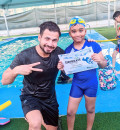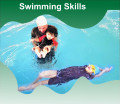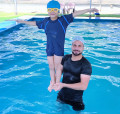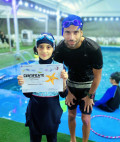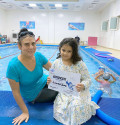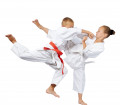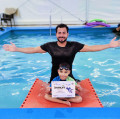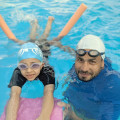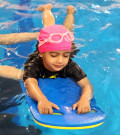
Karate involves dynamic movements, enhancing a child's physical fitness and coordination
2024-01-19 - karateMartial arts have long been celebrated for their physical
and mental benefits, and when it comes to nurturing these skills in kids,
Karate emerges as a powerful choice. In this article, we delve into the world
of "Karate for Kids," exploring the myriad ways it contributes to
their overall development.
I. Introduction
A. Importance of Martial Arts for Kids
In a world filled with distractions, introducing children to
martial arts provides a unique avenue for physical and mental growth.
B. Focus on Karate as a Suitable Option
Among various martial arts forms, Karate stands out as an
excellent choice for its balance of discipline, skill-building, and character
development.
II. Benefits of Karate for Kids
A. Physical Fitness and Coordination
Karate involves dynamic movements, enhancing a child's
physical fitness and coordination.
B. Self-Discipline and Respect
Through the practice of Karate, children learn essential
values like self-discipline and respect for themselves and others.
C. Improved Focus and Concentration
The structured nature of Karate training cultivates improved
focus and concentration in young minds.
III. Learning Martial Skills
A. Basic Karate Techniques
Initiating children with fundamental Karate techniques sets
the foundation for their martial journey.
B. Gradual Progression in Training
Structured training programs ensure that kids progress at a
pace suitable for their age and skill level.
C. Importance of Consistency in Practice
Regular practice is key in mastering Karate skills,
emphasizing the importance of consistency.
IV. Building Confidence
A. Overcoming Challenges in Karate
Facing and overcoming challenges in Karate builds resilience
and boosts confidence.
B. Positive Impact on Self-Esteem
Achieving milestones in Karate positively influences a
child's self-esteem and self-worth.
V. Safety in Karate for Kids
A. Importance of Proper Supervision
Ensuring kids practice Karate under proper supervision
minimizes risks and enhances safety.
B. Safety Gear and Precautions
Investing in appropriate safety gear and teaching
precautionary measures fosters a secure learning environment.
VI. Choosing the Right Karate School
A. Researching Reputable Schools
Parents play a crucial role in researching and selecting
reputable Karate schools for their children.
B. Visiting and Assessing the Environment
A firsthand look at the training environment helps in
evaluating the suitability of a Karate school.
C. Meeting the Instructors
Interacting with instructors ensures alignment with the
child's learning needs and the school's philosophy.
VII. Balancing Fun and Discipline
A. Incorporating Enjoyable Activities
Balancing discipline with enjoyable activities makes Karate learning
a fun and engaging experience.
B. Maintaining a Structured Learning Environment
A structured learning environment ensures that the fun
aspect of Karate is seamlessly integrated with discipline.







.jpg)




















































